Contents
- 1 1. Marty’s guys
- 2 2. Thelma!
- 3 3. Scorsese’s defiance
- 4 4. The gossip
- 5 5. Isabella Rossellini, in perfect ex-wife mode
- 6 6. Scorsese talking shit about Harvey Weinstein
- 7 7. Scorsese talking about the Oscars
- 8 8. That time Scorsese went a little Travis Bickle
- 9 9. The cocaine
- 10 10. Scorsese’s relationship with fame
- 11 11. The lost movies
- 12 12. The cut-for-time movies
Rebecca Miller has a clear thesis in Mr. Scorsese: There will never be another Martin Scorsese. Over five episodes of the Apple TV+ docuseries, Miller augments this argument through interviews with Scorsese and people from his life — childhood friends, recurring collaborators like editor Thelma Schoonmaker and actor Robert De Niro, relatives including his three daughters — and select clips from his decades of work. Every time Miller whips out a split screen to trace common themes between Scorsese’s various films and influences (like a comparison between the fights in Raging Bull and the shower-stabbing scene in Psycho), she proves her own deep understanding of Scorsese as an artist. Mr. Scorsese is an eye-opening and deeply moving viewing experience, one that had me crying within the first three minutes of the premiere episode. It is also, at a run time of 287 minutes, not nearly enough. Not! Nearly! Enough!
Mr. Scorsese is convincing in its suggestion that Scorsese is perhaps the defining American filmmaker of his time, someone whose persistent interest in masculinity and money and the corrupting influence of both on our morality is a mirror held up to our national identity. The docuseries is so successful in hitting these points that I wanted to see more of the connections Miller was making; Scorsese’s career is rich and varied enough that Mr. Scorsese could have been, I don’t know, five more episodes? Ten more episodes? An episode released weekly until the end of time? I am being conservative and reasonable, I think! Here are 12 elements of Mr. Scorsese just begging for more screen time.
1.
Marty’s guys
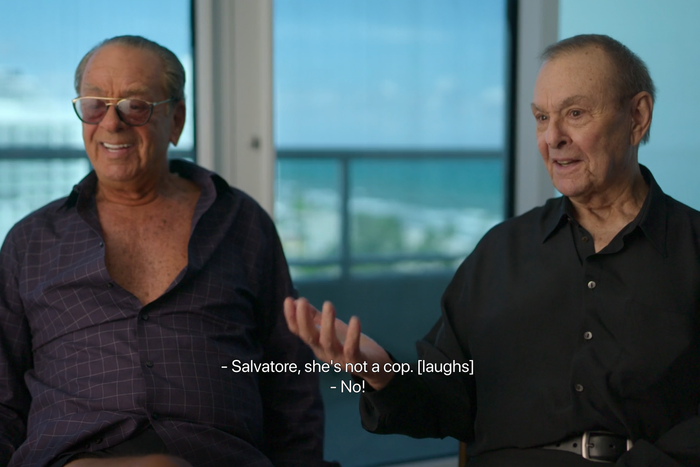
Photo: Apple TV+
Mr. Scorsese is chronological, so premiere “Stranger in a Strange Land” spends time with the guys he grew up with in the Bowery. Scorsese bickering with Joe Morale and Robert Uricola about how they met is lovely and warm, which counters the discussion about the prevalent violence in their neighborhood. These men provide real color to Scorsese’s biographical details, like how his asthma led his father to take him to movie theaters for the air-conditioning, helping spark the filmmaker’s early love of cinema. Two men are particularly engaging: childhood neighbor Dominick Ferraro, who talks about a fight they were in at the West Side Club, and Uricola’s cousin Sally, who inspired De Niro’s character in Mean Streets. Ferraro’s description of Scorsese’s reaction after the fight is gold (“Scorsese turns around and says, ‘I wish I had a camera.’ I said, ‘This fucking guy wants a camera, I want a gun’”), and Sally deserves a memoir of his own. When Miller asks if he really blew up a mailbox, as depicted in Mean Streets, his casual admission and shrugging, “Let them arrest me now,” is hilarious.
2.
Thelma!
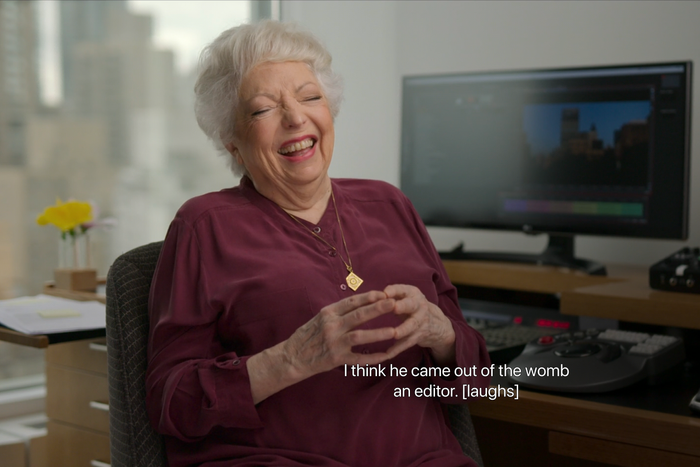
Photo: Apple TV+
Real ones know that Scorsese’s longtime editor, Thelma Schoonmaker, is a major reason why his films look so good and move so well. Mr. Scorsese pieces together how Scorsese and Schoonmaker met, separated for nearly a decade after he was taken off the 1970 documentary Woodstock, then reunited for 1980’s Raging Bull and have stayed together since. Schoonmaker is an unparalleled figure in America’s cinematic history, and while I relished the behind-the-scenes information Miller got about how she cut Raging Bull and popularized the use of jump cuts with 1990’s GoodFellas, it would have been wonderful to see a joint interview with her and Scorsese sharing memories of prior projects.
3.
Scorsese’s defiance
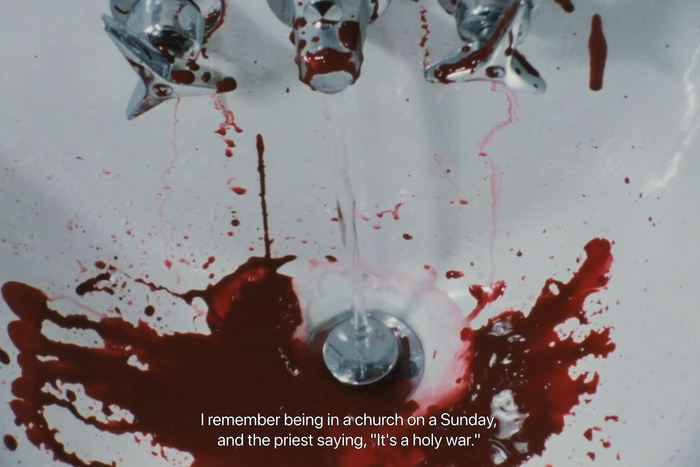
Photo: Apple TV+
Scorsese’s career has long been fixated on the different layers of the American myth and why they allure and trap us. Mr. Scorsese tackles this through-line from a couple different directions. First is the story of Louis Frezza, Scorsese’s friend who died at 18 from cancer and was buried in a Queens cemetery, above which loomed a gigantic sign for the Continental Can Company. The omnipresence of capitalism in what should have been a place of faith disgusted Scorsese: “I was thinking, What is life? Screw you. I’m not gonna work for the Continental Can Company. … I couldn’t do it. I wouldn’t do it,” he says now. Criticism of capitalism and imperialism undermining individual dignity drives a ton of his work, from the 1967 anti–Vietnam War short film The Big Shave to his 2002 NYC origin story Gangs of New York, and Scorsese comparing that film’s Natives gang to the Proud Boys is thought provoking as hell. I wish Mr. Scorsese had let him cook a little longer about the political angles to his work.
4.
The gossip
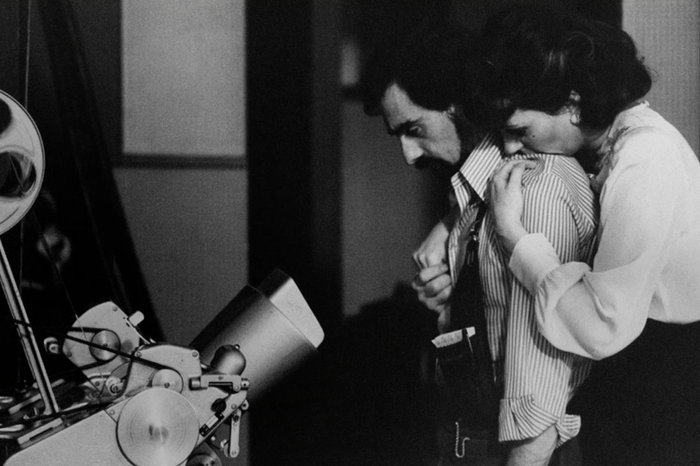
Photo: Apple TV+
Mr. Scorsese doesn’t feel especially compromised by the filmmaker’s involvement, but there are moments throughout the series when it feels like certain things are only being alluded to. Did Scorsese have an affair with Liza Minnelli in 1977’s New York, New York? Did he and Harvey Keitel fall out, and that’s why they didn’t work together for 30 years? What about Steven Prince, the subject of Scorsese’s 1978 documentary American Boy? Prince was an actor who served as Scorsese’s assistant during his cocaine era and partially inspired Eric Stoltz’s character in Quentin Tarantino’s Pulp Fiction. Five years ago, he was the subject of a lengthy New Yorker profile for which Scorsese declined to be interviewed; it would be fascinating to get his perspective on that time in Scorsese’s life. Mr. Scorsese didn’t have to be messy, necessarily, but this man has lived a life. May we please have some gossip?
5.
Isabella Rossellini, in perfect ex-wife mode
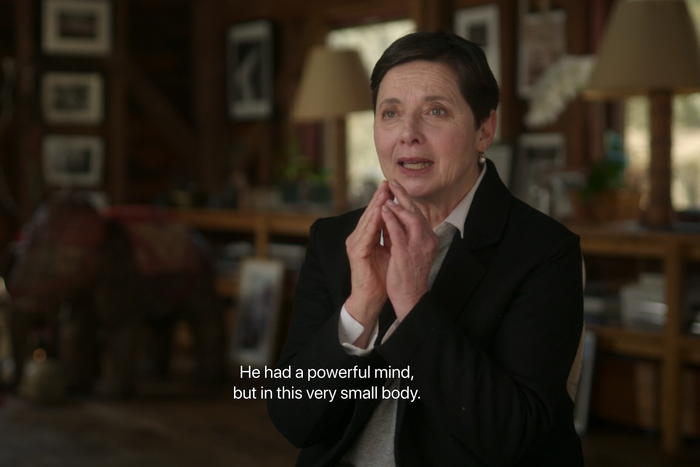
Photo: Apple TV+
This is how you talk about an ex: with warm affection and a sly read.
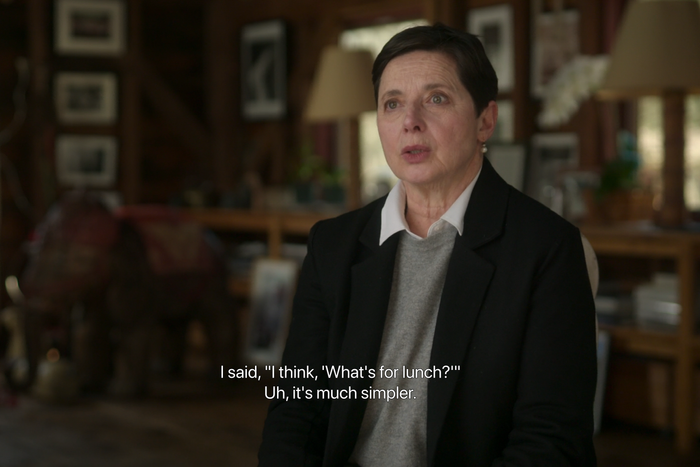
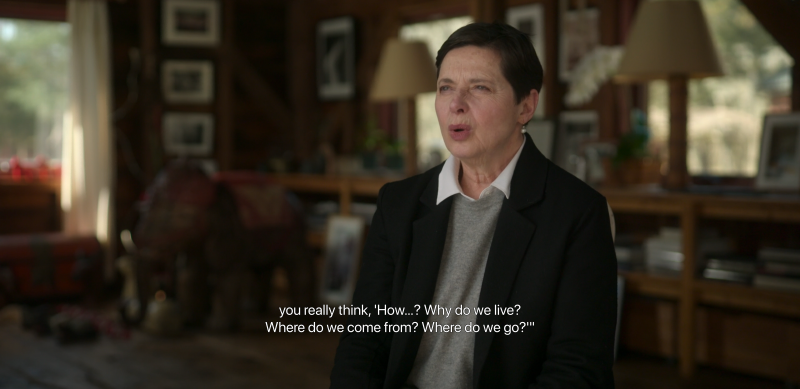
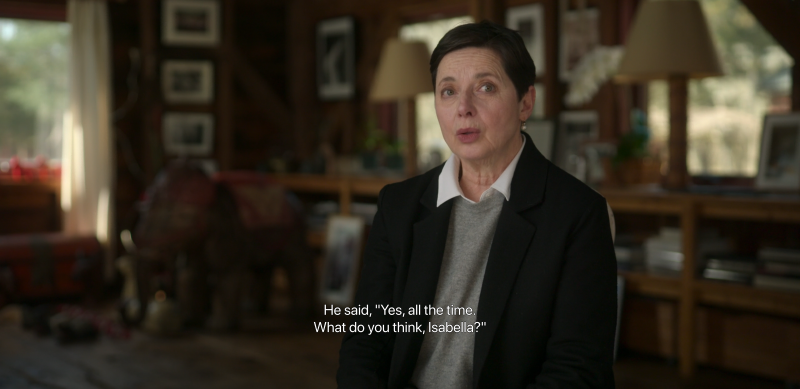
She’s right: Sometimes it is just easier to think about lunch! Please, more of Isabella lightly teasing Marty about his tendency to flagellate himself while considering the agony of the human condition.
6.
Scorsese talking shit about Harvey Weinstein
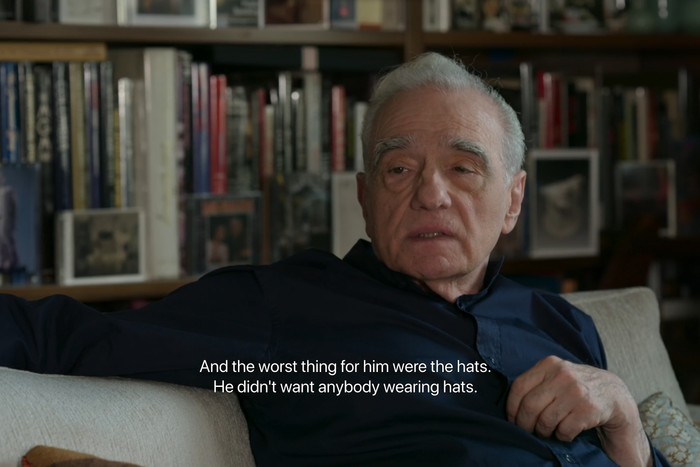
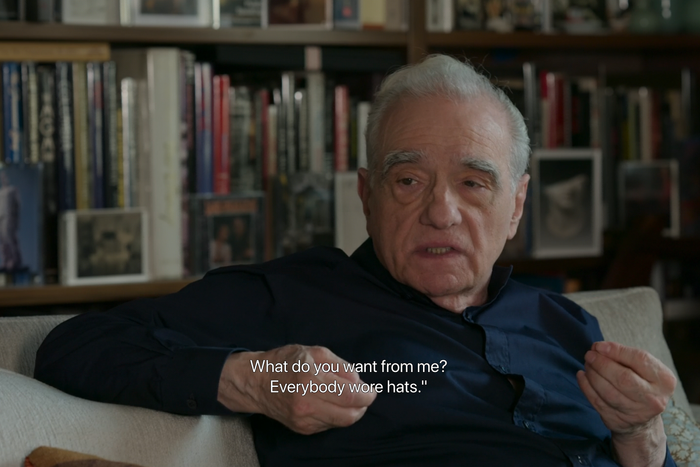
It is simply hilarious to watch Scorsese and screenwriter Jay Cocks talk shit about Harvey Weinstein, who produced Gangs of New York and was constantly butting heads with Scorsese. I have many times watched this scene in which Scorsese in an exasperated tone and with pinched fingers complains about how Weinstein wanted to cut the movie’s wardrobe budget because he didn’t understand why so many characters were wearing hats. I would hear a million more of his complaints about Weinstein.
7.
Scorsese talking about the Oscars
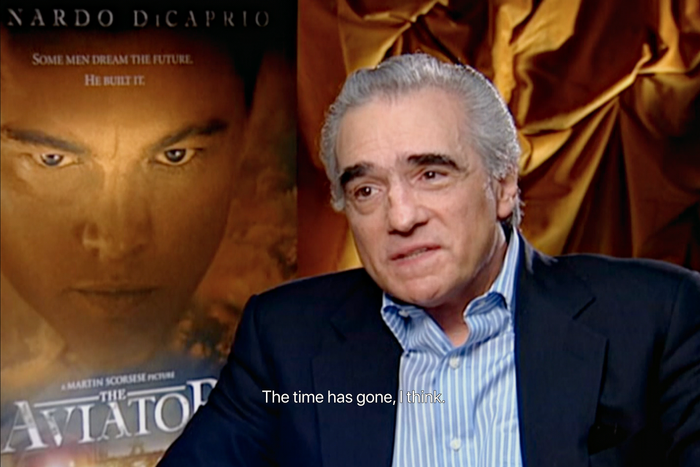
Photo: Apple TV+
Scorsese’s films have been nominated for more than 100 Oscars, but he only has one personal win for directing 2006’s The Departed. A clip from The Aviator press tour in 2004 shows Scorsese’s gracious answer to an interviewer’s question about whether he wants an Oscar (“Me, personally? The time has gone, I think”), but I refuse to accept that one Oscar is enough for this man. Billie Eilish is 23 years old, and she has two! I don’t care that the categories are different; it’s the principle of the thing. Rebecca Miller, please call every person you know in the Oscars’ Directors Branch and grill them on why Scorsese has been so overlooked. I will happily wait for that companion docuseries in which every one of Scorsese’s peers is interrogated for their lack of respect.
8.
That time Scorsese went a little Travis Bickle
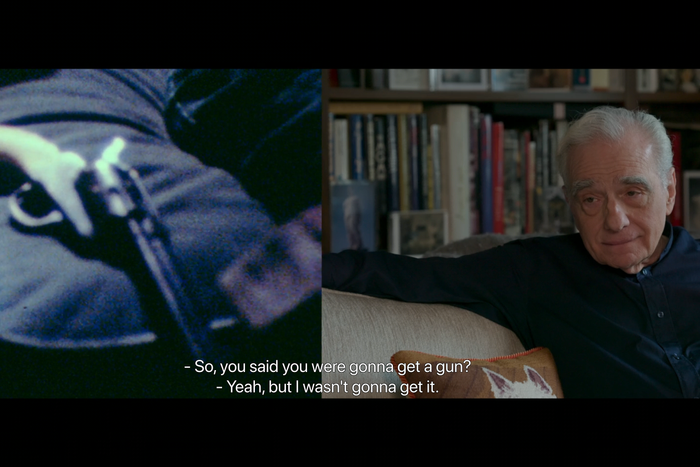
Photo: Apple TV+
Taxi Driver was a shot in the arm to American cinema: a wildly dark movie about a man lost in his own fantasies and obsessions with access to guns and a strict moral code that he’s willing to die to defend. The MPAA originally gave it an X rating, and the film’s studio told Scorsese to cut it to an R rating, or they would. A classic story of artist versus overlords — which took a turn, well, fitting of Taxi Driver when Scorsese threatened to kill the head of the studio. Steven Spielberg and Brian De Palma describe Scorsese telling them that he was going to get a gun, and the contrast between their bemused recounting of this story and Scorsese’s aggressive eye roll and laughter about the threat is highly entertaining. He now seems to be underplaying the sincerity of his outsize reaction, but it’s illuminating when Scorsese says, “Violence is scary, in yourself,” because he admits he was willing to get wild to defend his art. Hearing more about whether Scorsese felt pushed into violence to defend his other movies would have been compelling, too.
9.
The cocaine
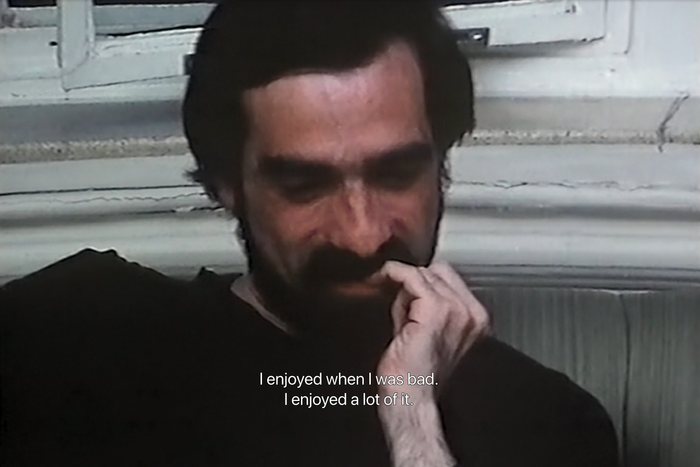
Photo: Apple TV+
Scorsese’s cocaine addiction in the 1970s was clearly not a good time — Rossellini talking about how he woke up once to find himself black and blue all over, then learned at the hospital that he was bleeding internally from his heavy drug use, is harrowing. More details about that would feel perhaps voyeuristic. There’s an interesting connection, though, between Scorsese’s near-death experience and his relationship with De Niro, who asked him in the hospital if he really wanted to “die like this” and urged him to get better and direct Raging Bull. I cried when Scorsese quietly said of De Niro’s offer, “I looked at him, and I said, ‘Okay,’” but how much did Scorsese then feel grateful (or indebted) to De Niro? When they worked on movies together that Scorsese says he didn’t particularly enjoy (The King of Comedy) or isn’t sure entirely worked (Cape Fear), did Scorsese agree to the gigs because De Niro was there for him in his worst moment? A little more discussion of how hitting rock bottom affected his working relationships could have helped round out this section.
10.
Scorsese’s relationship with fame
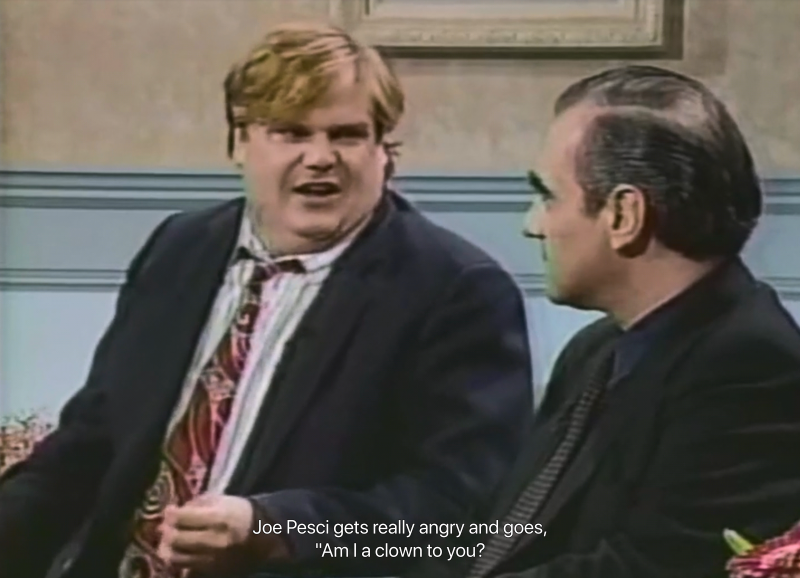
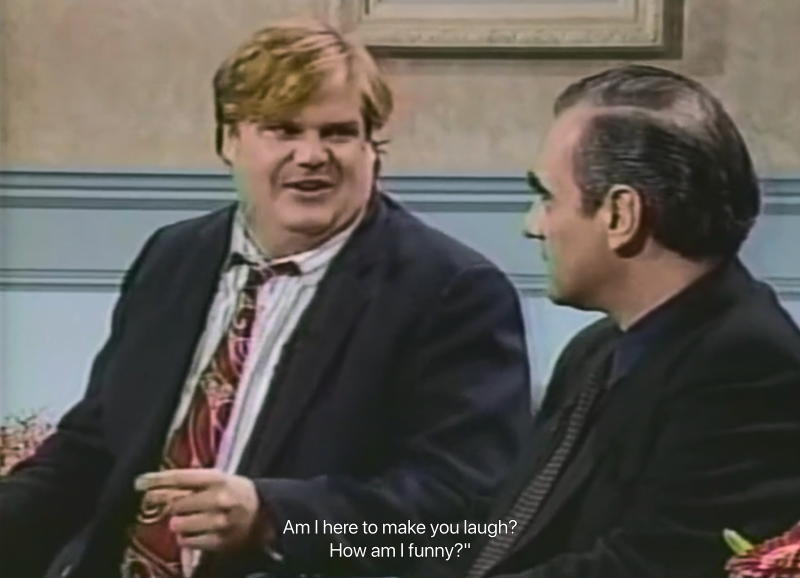
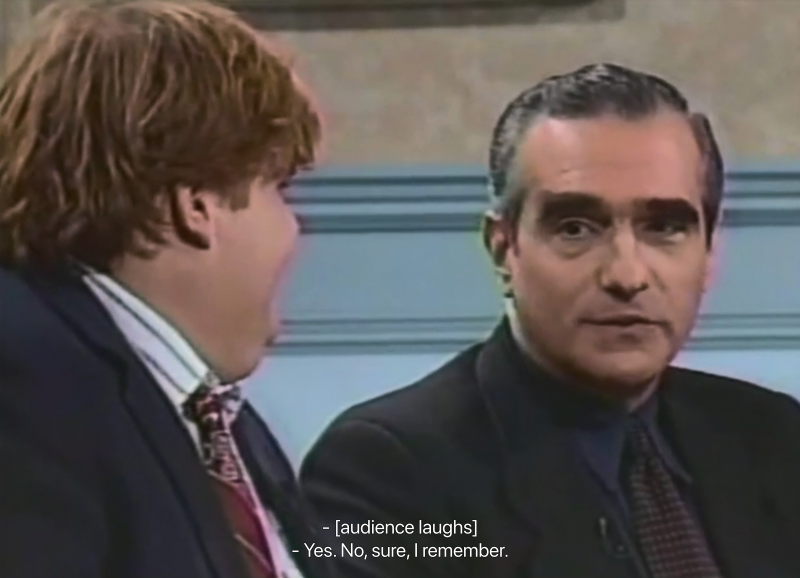
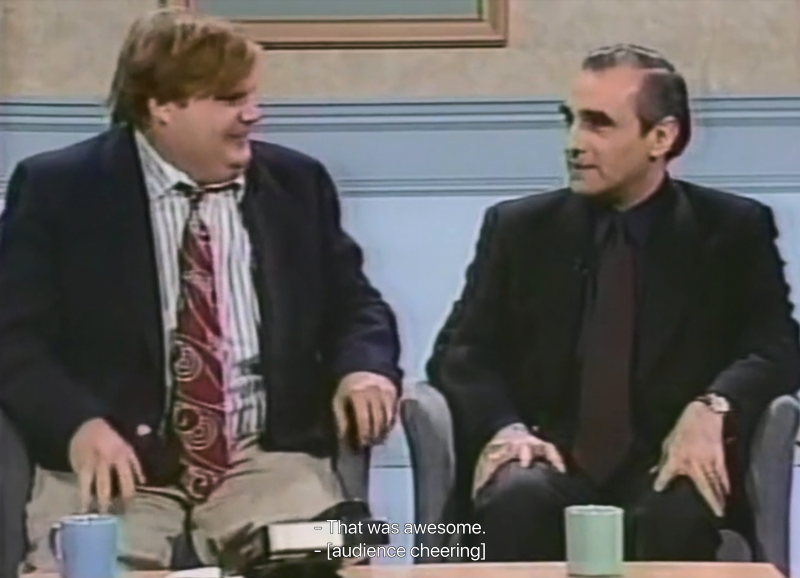
Scorsese’s been famous for a long time. He’s been protected by the FBI twice, after John Hinckley Jr.’s Taxi Driver–inspired attempt to assassinate President Ronald Reagan and after the release of The Last Temptation of Christ. You’ve probably seen at least one of his daughter Francesca’s viral TikTok videos or Instagram photos of her dad. We probably think we know Scorsese, or at least the version of him that comedians like Kyle Mooney have played on Saturday Night Live — which makes his discomfort with fame worth hearing more about. His daughters talk most about this, with Francesca mentioning a time when he didn’t leave their apartment except to go to his office. But how does Scorsese feel about this? He doesn’t speak much about how the ebbs and flows of celebrity have affected him, but I would like to know how he deals with not being able to experience New York City as casually as he once did.
11.
The lost movies
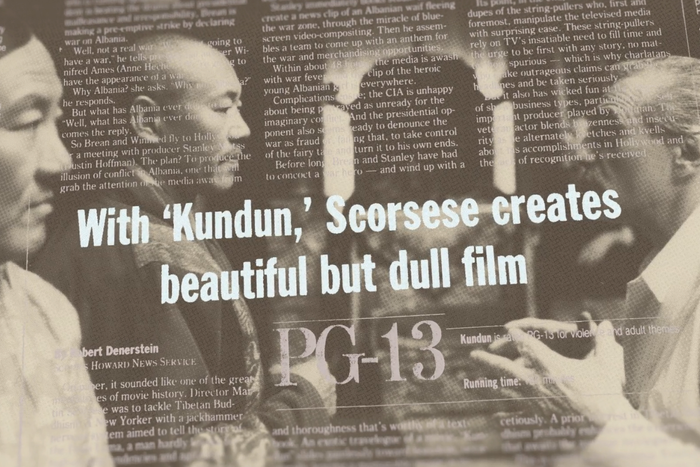
Photo: Apple TV+
You probably know that people were very angry about The Last Temptation of Christ, in which Willem Dafoe plays a Jesus Christ who fucks, and Mr. Scorsese traces how the outcry against the movie was led by the increasingly powerful religious right in the U.S. But what about Kundun? Scorsese’s film about the Dalai Lama is only briefly discussed in terms of its amateur cast and its reception as “beautiful but dull.” The missing context is that Disney severely curtailed the release of the film because of the Chinese government’s pushback. Disney’s then-CEO Michael Eisner publicly apologized for the movie, saying, “The bad news is that the film was made; the good news is that nobody watched it.” Kundun has remained incredibly difficult to find — the physical-media release was limited, it’s not streaming in the U.S., and repertory screenings are rare. Why not dig into any of this?
12.
The cut-for-time movies
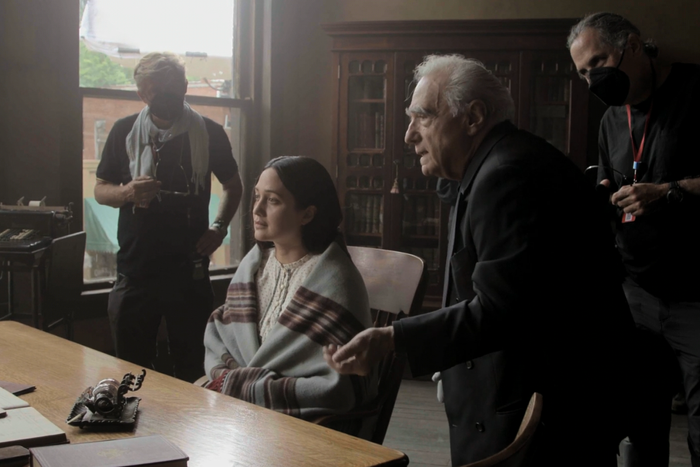
Photo: Apple TV+
1991’s Cape Fear, 1999’s Bringing Out the Dead, and 2011’s Hugo all get only a line or so of commentary and a brief little montage clip, so if one of those is your Scorsese favorite you’re not getting much. And if one of your favorites is Killers of the Flower Moon, as it is mine, well, we’re out of luck, too. Despite KOTFM also being an Apple TV production, Mr. Scorsese relegates it solely to a few minutes at the end of “Method Director.” There’s footage of Scorsese prepping a couple of gigantic cork boards and directing scenes, but no real discussion of his motivations for tackling the film. Perhaps Mr. Scorsese wrapped sometime before the film’s release, but the series could have done a way better job encouraging people who already pay for Apple TV+ to fire up KOTFM. Eliding Scorsese’s most recent film makes for a really abrupt ending, and leaves Mr. Scorsese feeling undeservedly incomplete. Where art thou, Lily Gladstone?
Click here to preview your posts with PRO themes ››


